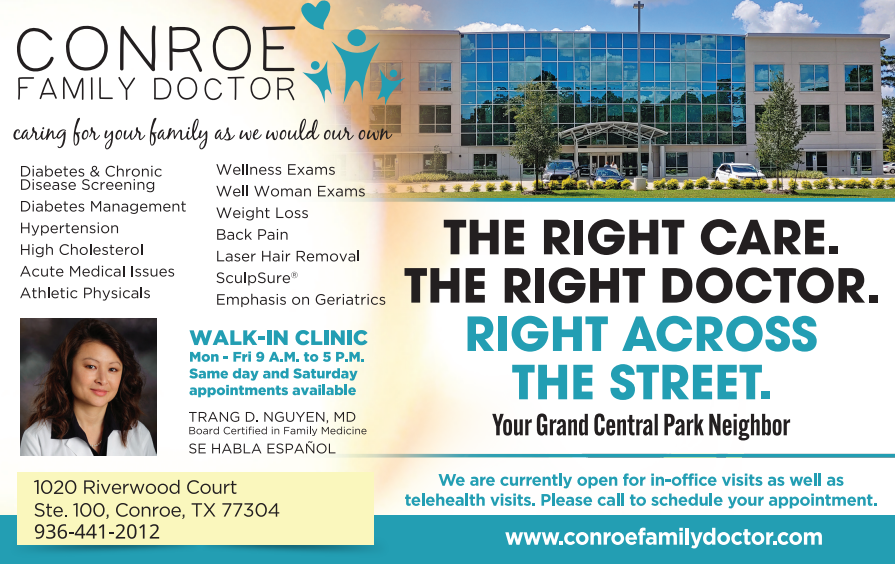
On average, one in three Americans is diagnosed with high blood pressure. Half of the individuals diagnosed with high blood pressure have their condition under control. The primary reason patients struggle to control their blood pressure is the decision to stop taking their medications. Side effects of blood pressure medications are fatigue, weakness, and dry cough. Physicians have learned smaller doses of many different blood pressure medications can be the way to address these issues.
Are Your Symptoms Side-Effects Of Blood Pressure Medication?
Scientists have learned that smaller doses of two or more medications are as effective as total doses. Taking four different medications can be more effective, still. People who take smaller doses of different medications report fewer side effects than patients taking one medication.
For years, physicians have tried to find practical, safe ways to manage high blood pressure. Initially, physicians aimed for 140/90 as a blood pressure target. Studies have shown that 120/80 is more effective for preventing strokes, heart attacks, and heart disease. Patients who take hypertension medication report these symptoms:
- Fatigue: Some hypertension medication causes a feeling of exhaustion.
- Dizziness: Patients report feeling dizzy and unsteady when taking their medications.
- Fainting: In some extreme cases, hypertension medications can cause patients to lose consciousness briefly.
- Increased urination: Some hypertension medications also act as a diuretic. Increased urination is a side effect of these medications. For many patients, this side effect clears up in a few weeks.
- Erectile dysfunction: Some beta-blockers can cause men difficulty maintaining an erection.
- Leg swelling: Water retention or inflamed blood vessels can cause your legs to swell.
- Coughing: Some ACE inhibitors can cause a dry, hacking cough.
Many patients require more than one medication to lower their blood pressure. Physicians want their patients’ blood pressure to remain at a healthy range. It’s generally more effective to add a second medication. Adding a second medication prevents physicians from prescribing a higher dose of the medication already being taken. Taking lower doses of multiple medications is more effective and safer than one high-dose medication.
There are other ways to lower the dose of your medication safely. You can use a pill splitter to divide your medication. Blood pressure medications are essential to preventing heart attacks if you have heart disease. If you’ve been diagnosed with heart disease, don’t split your pills without your physician’s consent.
If you’re still in the early stages of hypertension without heart disease, your physician can lower your medication dose. In an ideal situation, patients should be prescribed the lowest dose possible. When visiting your doctor, ensure you have all your medications reviewed and discuss side effects.
Hypertension Treatment with Conroe Family Doctor
At Conroe Family Doctor, we can help you lower your medication’s dose safely and effectively. Our patients’ safety always comes first, and Dr. Trang D Nguyen is a hypertension expert. If you’ve been diagnosed with hypertension and want to lower your medication dose, call us at (936) 441-2012 to schedule an appointment with Dr. Nguyen. Your health is essential to us, and we want to ensure your medications are safe and effective.
February 13, 2023
in Blog
Conroe Family Doctor in Conroe, Texas Your Grand Central Park Neighbor. The right care, the right Doctor, right across the street! We are open for in-office visits as well as telehealth visits. Please call (936) 441-2012 or go Online www.conroefamilydoctor.com to schedule your appointment.
February 13, 2023
in Blog
Conroe Family Doctor in Conroe, Texas Wishing you and your loved ones a Safe and Happy Valentine’s Day! We are open for in-office visits as well as telehealth visits. Please call (936) 441-2012 or go Online www.conroefamilydoctor.com to schedule your appointment.

Gout, a type of inflammatory arthritis, might worsen heart-related conditions for people undergoing treatments for coronary artery disease. Gout affects nearly six million men and two million women in the United States. Uric acid builds up and creates needle-like crystals in the joints, causing pain, tenderness, redness, warmth, and swelling. Gout is usually centered in the toes and feet. It’s also associated with kidney disease, diabetes, cancer, and sleep apnea.
How Gout Endangers Your Heart and Vascular System
Gout symptoms can affect more than one joint at a time. If left untreated, it can often start in your big toe and lead to symptoms in other joints. A few of these symptoms are:
- Swelling in the joints
- Redness of the skin around the joints
- Warmth around the joints
- Tenderness of the muscles
- Pain in the joints when touched
- Difficulty moving the body part
Gout isn’t a life-threatening condition. It can lead to complications if you don’t treat your symptoms. Gout can increase the risk of cardiovascular conditions. Heart failure, heart attacks, and strokes are only a few conditions that can develop. Many conditions can cause these complications, but the buildup of uric acid crystals can affect blood vessels.
Gout also increases the risk of diabetes. The rates in women are higher than they are in men. These rates are due to high levels of inflammation in and around the joints. People with gout are more likely to be overweight and have high blood pressure or cholesterol. The risk of Type 2 Diabetes is also increased in patients with gout. The risk is 71% in women and 22% in men. Doctors suspect that this risk is linked to inflammation. Gout patients are often overweight and have high blood pressure or cholesterol. Gout can also increase the risk of kidney disease. If you don’t treat kidney disease, it can lead to kidney failure.
Past studies have shown people have an increased risk of heart disease when they have untreated gout. These studies are from decades ago, but modern treatments can be utilized with this data. Doctors are aware of the link between gout and heart disease now.
Your best resource for treating gout and preventing heart disease is your doctor. If your doctor knows the problem, they can treat your gout. And if you treat gout, your risk of heart disease is limited. Gout doesn’t only affect your joints. It causes inflammation in your entire body. It’s not just pain in your feet. It affects other organs, even your heart.
Contacting Your Doctor to Treat Your Gout
Contacting your doctor when you have your first flare-up is for the best. Your doctor will prescribe medications to treat your inflammation, which are most effective within 24 hours. You’ll need to contact a physician if you have any signs of complications. Or if you have symptoms of heart attack or stroke. Those complications will require immediate attention. Gout might not be fatal but can lead to life-threatening complications if left untreated. Joint damage isn’t as dangerous as cardiovascular complications or kidney disease. Gout flare-ups and uric acid levels can be controlled with the help of the physicians at Conroe Family Doctor. Call us to schedule an appointment today.

One little-known side-effect of Covid-19 is a painful condition known as “Covid Tongue.” This term refers to a state of inflammation and swelling in the tongue. Bumps or ulcers are other common symptoms in patients experiencing this condition. Some patients may present with a white patchy tongue or redness and swelling. This condition notably impacts sufferers’ ability to taste food while living with Covid.
When a Swollen Tongue May Indicate COVID
Discovering your tongue is swollen doesn’t automatically mean you have Covid-19. Several conditions, including disease, can lead to a tongue becoming inflamed and swollen. However, it can’t hurt to take a Covid test if there is no discernable reason that your tongue should otherwise be experiencing symptoms.
Within our cells are enzymes called ACE receptors. SARS-CoV-2 targets these enzymes, making it possible for the virus to attack the cells. Once the virus has invaded the cell by attacking these receptors, it can multiply within the body and spread the illness. The tongue has many ACE receptors, making it a prime virus target. The inflammation, patchiness, and bumps result from the virus infesting the tongue.
Another common cause of inflammation in the tongue is a condition known as glossitis. It shares many symptoms with Covid Tongue, causing the tongue to become swollen and sore. However, this condition can occur due to other factors, including poor oral hygiene and allergies.
Some other conditions that can cause the tongue to become swollen and sore include:
- Mouth injuries
- Hormonal fluctuations
- Oral skin conditions
- Vitamin deficiencies
Due to the numerous reasons that your tongue may become swollen, it’s essential to check with your medical professional to diagnose the source correctly.
Covid has many symptoms, but according to the CDC, these are the more problematic symptoms you should look out for:
- Chills accompanying a high fever
- Exhaustion and fatigue
- Headaches
- Body aches
- Sore throat
- Nasal congestion
- Nausea and vomiting
- Diarrhea
The bottom line is that you don’t want to ignore bumps or inflammation of your tongue—but don’t panic if you develop one of these symptoms, either.
Treatments
Presently, no treatments explicitly target Covid Tongue, but some options may help. These approaches treat the inflammation and swelling in the tongue rather than the viral load itself.
- Keep up a solid oral hygiene routine
- Narrow down potential allergy triggers
- Maintain a steady course of prescribed antibiotics
- Consider supplementing your diet with vitamins
It’s likely that successfully treating Covid will also lead to the elimination of Covid Tongue symptoms. Throughout the illness, be sure that you’re taking cold medication, getting sufficient rest, and hydrating regularly.
Contact Your Physician If You Suspect Covid
If you’re experiencing swelling and inflammation of the tongue accompanied by typical symptoms associated with Covid, get tested immediately. While the underlying cause may not be a Covid infection, eliminating this possibility will help narrow down the source. By eliminating potential causes, you and your doctor can quickly find an appropriate treatment plan to bring you effective relief. Stay ahead of Covid by calling and scheduling an appointment with your physician today!






